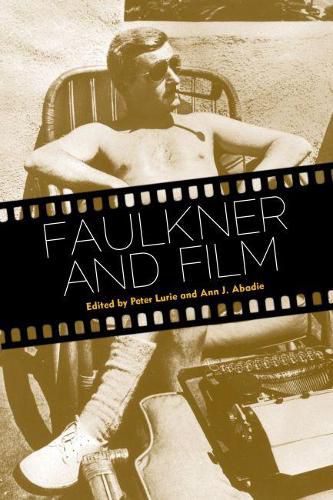Readings Newsletter
Become a Readings Member to make your shopping experience even easier.
Sign in or sign up for free!
You’re not far away from qualifying for FREE standard shipping within Australia
You’ve qualified for FREE standard shipping within Australia
The cart is loading…






Considering that he worked a stint as a screen writer, it will come as little surprise that Faulkner has often been called the most cinematic of novelists. Faulkner’s novels were produced in the same high period as the films of classical Hollywood, a reason itself for considering his work alongside this dominant form. Beyond their era, though, Faulkner’s novels - or the ways in which they ask readers to see as well as feel his world - have much in common with film. That Faulkner was aware of film and that his novels’ own
thinking
betrays his profound sense of the medium and its effects broadens the contexts in which he can be considered.
In a range of approaches, the contributors consider Faulkner’s career as a scenarist and collaborator in Hollywood, the ways his screenplay work and the adaptations of his fiction informed his literary writing, and how Faulkner’s craft anticipates, intersects with, or reflects upon changes in cultural history across the lifespan of cinema.
Drawing on film history, critical theory, archival studies of Faulkner’s screenplays and scholarship about his work in Hollywood, the nine essays show a keen awareness of literary modernism and its relation to film.
$9.00 standard shipping within Australia
FREE standard shipping within Australia for orders over $100.00
Express & International shipping calculated at checkout
Considering that he worked a stint as a screen writer, it will come as little surprise that Faulkner has often been called the most cinematic of novelists. Faulkner’s novels were produced in the same high period as the films of classical Hollywood, a reason itself for considering his work alongside this dominant form. Beyond their era, though, Faulkner’s novels - or the ways in which they ask readers to see as well as feel his world - have much in common with film. That Faulkner was aware of film and that his novels’ own
thinking
betrays his profound sense of the medium and its effects broadens the contexts in which he can be considered.
In a range of approaches, the contributors consider Faulkner’s career as a scenarist and collaborator in Hollywood, the ways his screenplay work and the adaptations of his fiction informed his literary writing, and how Faulkner’s craft anticipates, intersects with, or reflects upon changes in cultural history across the lifespan of cinema.
Drawing on film history, critical theory, archival studies of Faulkner’s screenplays and scholarship about his work in Hollywood, the nine essays show a keen awareness of literary modernism and its relation to film.